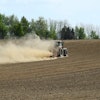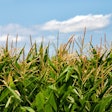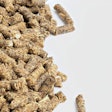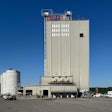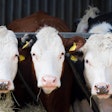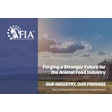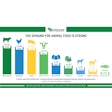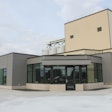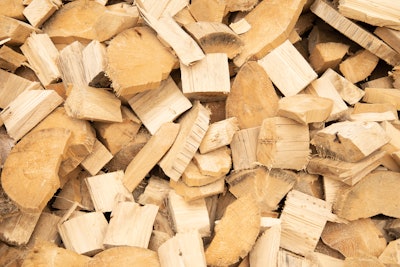
Millions of pounds of low-value wood, such as small-diameter trees and branches, have been left behind in Maine’s forests due to the decline in pulp and paper production, stymied by drought, fire suppression and dropping demand. While there are very few existing market opportunities for this low-quality woody biomass, University of Maine researchers believe it can be used to create unique goods that could bolster the economy of the state and its rural communities: sustainable jet fuel and a sustainable protein component of fish feed for aquaculture-farmed fish.
The UMaine Forest Bioproducts Research Institute (FBRI) and Aquaculture Research Institute (ARI) have been awarded a US$10 million U.S. Department of Agriculture (USDA) grant for their Sustainable Wood to Fuel and Fish Feed for Strengthening the U.S. Bioeconomy project, also known as SWF3. Collaborators include the University of Massachusetts Lowell (UMass Lowell), USDA Agricultural Research Service (ARS) and Arbiom, a North Carolina and France-based manufacturer of protein ingredients for human and animal food.
“The Forest Bioproducts Research Institute is excited to lead this interdisciplinary project,” said FBRI Director Clayton Wheeler. “The new funding is key to developing creative and sustainable markets for underutilized forest biomass while prioritizing the inclusive values that are important to advancing equitable rural development in Maine.”
Low-quality wood contains organic compounds that can be converted into fuel, called lignins, and sugars that can be fermented into proteins for fish feed. Existing renewable fuels for jets and other aircraft are more expensive than those derived from petroleum. Making fuel from low-quality woody biomass might lower the cost while also helping the nation transition away from fossil fuels.
Fish feed, which traditionally contains fishmeal and fish oil, is among the highest expenses for aquaculture production. Making single-source proteins synthesized from sugar in woody biomass to add to fish feed may be more cost-effective and sustainable, as the use of fishmeal and reliance on natural fisheries will be greatly reduced.
“The Aquaculture Research Institute is thrilled to be part of this groundbreaking project,” said ARI Director Debbie Bouchard. “By converting low-quality wood into an ingredient for sustainable fish feed, we’re not only addressing a critical need in aquaculture but also enhancing the economic value of Maine’s forests. This innovative approach will pave the way for more resilient and sustainable aquaculture practices.”
The project is part of a National Institute of Food and Agriculture (NIFA) program, which provides funding to advance sustainability in agricultural systems. It builds on UMaine’s expertise and capabilities in both forest biofuels and Atlantic salmon aquaculture research.
By developing new products using wood that has been historically considered waste, researchers are creating opportunities for generating additional revenue streams, maximizing the value of the forestland, avoiding forest land use change and incentivizing active and sustainable forest management, thereby improving forest health through practices such as pre-commercial thinning.
The sugars, lignin and other biomass components from the wood will be separated by FBRI and converted to protein by Arbiom using their proprietary microbial fermentation process. The proteins will then be formulated into fish feed by ARS in collaboration with ARI, which will conduct salmon growth and digestibility studies.
Lignin and other byproducts of the sugar production will be upgraded by FBRI to sustainable aviation fuel using a process called hydrothermal liquefaction, which employs high-temperature and -pressure water to break down the solid residues to organic liquids.
This fuel research will be supported by UMass Lowell with artificial intelligence-based predictive modeling, which will predict its effectiveness under different operating conditions and varying chemical compositions of the woody biomass. Another artificial intelligence-based analysis will be used by FBRI to guide the sustainable development of the combined processes.
In addition to the fuel and fish feed production research, FBRI and ARI will develop undergraduate- and graduate-level courses based on the findings from the SWF3 projects for a wide range of fields, including chemical engineering, artificial intelligence, fish nutrition, forest resources, economics, microbiology and sustainability. Researchers will also develop educational activities for K-12 learning in these fields in collaboration with University of Maine Cooperative Extension.
The strategic approach will help to fill curriculum gaps identified by bioeconomy stakeholders, from businesses to government agencies, and enable the education and training of a skilled bioeconomy workforce. Additionally, researchers will create videos, fact sheets, infographics and policy briefs based on the research findings to educate bioeconomy stakeholders in support of UMaine Extension’s mission.
